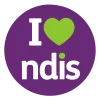So, you’ve just received your first NDIS plan… now what?
If you’re feeling overwhelmed, you’re not alone. For many people, starting with the National Disability Insurance Scheme (NDIS) can feel confusing, emotional, and even a little bit daunting. There’s new language, new processes, and a lot of pressure to make sure you “get it right.”
The good news? You don’t have to figure it all out at once. Here are 5 practical tips to help you understand, navigate, and make the most of your first NDIS plan.
1. Understand What’s Actually in Your NDIS Plan
Before you jump into booking services or spending your funds, take a moment to really read through your plan. It’s not just about how much funding you’ve received. It’s about what goals have been approved, and what types of support that funding is for.
Your NDIS plan is divided into three budget categories:
- Core Supports – For everyday activities like personal care, community participation, and transport.
- Capacity Building Supports – For building independence and learning new skills (like therapy, support coordination, or employment help).
- Capital Supports – For assistive technology (AT) and home modifications.
It’s tempting to focus on the dollar amounts. But you need to look at the descriptions, the categories, and how they match your goals. This is one the most important stages of beginning your NDIS journey and often the most overlooked. Because of this, working with a Support Coordinator can make all the difference. If you’ve just received funding and want to speak to an NDIS expert, reach out at any time. We are happy to walk you through your plan, and answer any questions, with zero expectations.
2. Get Support For Navigating NDIS Plan
One of the biggest misconceptions is that you need to be an expert to use your plan well. You don’t. There are professionals, like us, whose entire job is to help you navigate your plan successfully:
- Support Coordinators help you connect with the right services, manage complex supports, and build your confidence over time.
- Plan Managers help manage the financial side of your NDIS plan, including paying providers, tracking your budget, and helping you use your funds wisely.
It’s important to note that not everyone automatically gets funding for Support Coordination or Plan Management. It must be included in your plan. If you feel you need it, ask for it at your next review. We might be biased, as Support Coordinators ourselves, but we truly believe having this companionship makes all the difference to achieving your goals and getting the most from your NDIS plan.
3. Take Time to Choose the Right NDIS Providers
Don’t fall for the trap of booking the first available provider, without knowing anything about them. Even if you need support urgently, it’s important that you feel ready and comfortable to begin receiving supports from your chosen provider. Take your time to find NDIS providers who respect your needs, values, and goals.
Ask questions like:
- Do they have experience supporting people with my disability?
- Are they registered with the NDIS (if you’re agency-managed)?
- Can they offer flexible supports that work around my routine?
Most people don’t know this, but you’re allowed to trial services. If you’re unsure, request a trial. If you’re being supported by a provider but something isn’t working, you can change providers at any time. It’s your plan, your choice.
4. Keep Track of Your NDIS Budget
NDIS funding can go quickly if it’s not tracked properly. While people often focus on overspending, underspending can also be a problem if you’re not getting the support you need.
You don’t have to be a spreadsheet expert to stay on top of things. Here’s how to make it easier:
- Ask your plan manager to send you monthly statements.
- Use simple apps (like MyNDIS or SupportAbility) to track sessions and invoices.
- Keep notes about what supports you’ve used and what’s been helpful. This will make your next review much smoother.
Some funds are flexible (like Core), and others are fixed (like Capital). Know which is which so you don’t accidentally overspend in one area and miss out in another.
5. Start With Your Goals And Let Them Guide You
Your plan is built around your personal goals. These might include things like:
- Learning to catch public transport
- Making new friends
- Improving communication skills
- Finding a part-time job
- Living more independently
Every support that has funding in your NDIS plan is meant to help you take steps toward those goals. Keep a notebook or journal where you jot down small wins, progress, or challenges. This helps you stay motivated. And, it gives you real examples to share at your next plan review.
Navigating the NDIS with Achora
Starting your NDIS journey is a big milestone. It’s okay to feel unsure. It’s okay to ask for help. And it’s okay to take it one step at a time.
Every participant’s journey is different, and your first plan is just that: a first step. It will change over time as your goals evolve, and the more confident and informed you become, the more empowered you’ll feel to take control of your supports.
Need a hand getting started? Reach out to a registered NDIS provider or support coordinator who can walk alongside you. Not just at the beginning, but every step of the way.

